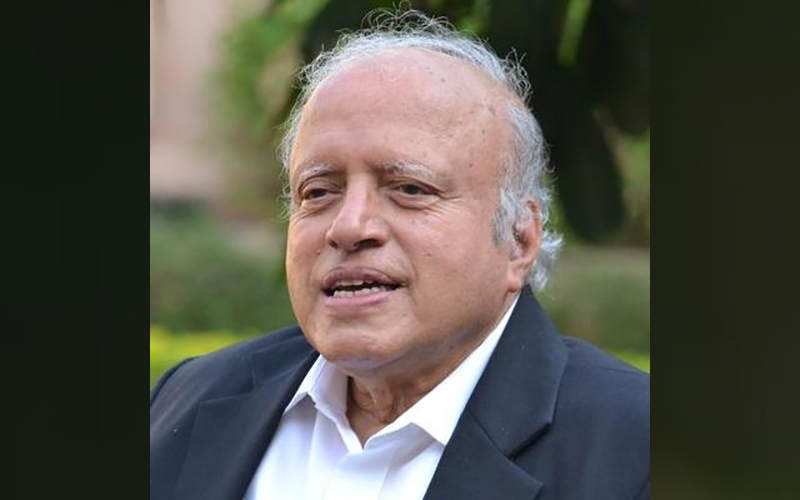 Bharat Ratna
Bharat Ratna
How MS Swaminathan, architect of Green Revolution, bolstered India’s food security
New Delhi: Prime Minister Narendra Modi on Friday announced that the late Indian agricultural scientist MS Swaminathan, along with former Prime Ministers PV Narasimha Rao and Chaudhary Charan Singh, would be conferred the Bharat Ratna.
Swaminathan's pioneering initiatives included the development and introduction of high-yield varieties of wheat and rice, leading to a substantial increase in food grain production throughout India. He passed away at the age of 98 on September 28 last year in Chennai.
“It is a matter of immense joy that the Government of India is conferring the Bharat Ratna on Dr. MS Swaminathan Ji, in recognition of his monumental contributions to our nation in agriculture and farmers’ welfare. He played a pivotal role in helping India achieve self-reliance in agriculture during challenging times and made outstanding efforts towards modernizing Indian agriculture. We also recognise his invaluable work as an innovator and mentor and encouraging learning and research among several students. Dr. Swaminathan’s visionary leadership has not only transformed Indian agriculture but also ensured the nation’s food security and prosperity. He was someone I knew closely and l always valued his insights and inputs,” the PM wrote in a post on X.
It is a matter of immense joy that the Government of India is conferring the Bharat Ratna on Dr. MS Swaminathan Ji, in recognition of his monumental contributions to our nation in agriculture and farmers’ welfare. He played a pivotal role in helping India achieve self-reliance in… pic.twitter.com/OyxFxPeQjZ
— Narendra Modi (@narendramodi) February 9, 2024
MS Swaminathan was drawn to agriculture during his youth amid the Quit India Movement and the Bengal famine of 1942-43.
Witnessing the devastation caused by the famine, Swaminathan redirected his career path from medicine to agriculture, enrolling at the Agriculture College in Coimbatore.
Motivated by the desire to contribute to India's independence, he chose to specialize in agricultural research, particularly focusing on genetics and breeding. Swaminathan recognized the profound impact of developing superior crop strains, which could benefit a vast number of farmers, both small and large-scale.
His dedication to agricultural science and genetics stemmed from a fascination with their potential to address pressing societal challenges.
Swaminathan's academic journey led him to various educational institutions across Europe and the United States. In 1954, he started his work at the Central Rice Research Institute in Cuttack, focusing on the transfer of genes for fertilizer response from Japonica varieties to Indica varieties.
According to Swaminathan, this was “the first attempt to develop high yielding varieties which can respond to good soil fertility and good water management.”
At that time India was faced with acute shortage of foodgrains and crops necessary for staple foods had to be shipped from countries like the US.
The need to develop high-yielding crops was felt intensely as Indian agriculture had been rendered unproductive after years of colonial rule, which nothing to add resources and develop and modernise the sector.
Following Swaminathan's pioneering work on rice, he and fellow scientists directed their efforts towards enhancing wheat productivity.
The challenge with traditional wheat and rice varieties lay in their tall and slender stature, prone to lodging, where they fell flat on the ground due to the weight of their well-filled grains in response to heavy fertilizer doses. Swaminathan's research aimed to reduce plant height, thereby minimizing lodging issues.
In pursuit of an ideal wheat variety, Swaminathan collaborated with American scientist Orville Vogel, who helped develop a dwarf wheat strain called Gaines, renowned for its high yield. Vogel, however, advised him to involve Norman Borlaug, known for incorporating dwarfing genes into his spring wheat varieties in Mexico, better suited for hot and humid Indian conditions.
Following Borlaug's visit to India, facilitated by Swaminathan, the wheat breeding program began in earnest in 1963. Within five years, the "Wheat Revolution" followed, leading to a significant increase in wheat production. Indira Gandhi, then Prime Minister of India, commemorated this achievement by releasing a special stamp.
In recognition of his monumental contributions, Swaminathan was honoured with the first World Food Prize in 1987.
He used the prize funds to establish the MS Swaminathan Research Foundation in Chennai, underscoring his dedication to sustainable and inclusive agricultural practices.
Swaminathan was also awarded the Ramon Magsaysay Award in 1971 and the Albert Einstein World Science Award in 1986.
Beyond his significant contributions in India, Swaminathan wielded influence on the global stage, playing a crucial role in various international agricultural and environmental initiatives.
Time magazine acknowledged him as one of the 20 most influential Asians of the 20th century, underscoring his extensive influence.
Support Our Journalism
We cannot do without you.. your contribution supports unbiased journalism
IBNS is not driven by any ism- not wokeism, not racism, not skewed secularism, not hyper right-wing or left liberal ideals, nor by any hardline religious beliefs or hyper nationalism. We want to serve you good old objective news, as they are. We do not judge or preach. We let people decide for themselves. We only try to present factual and well-sourced news.







